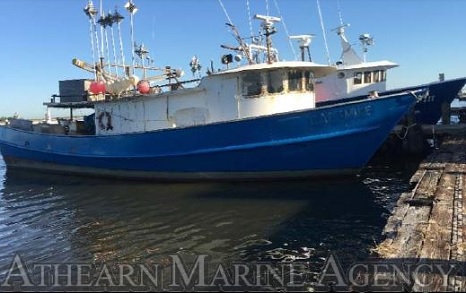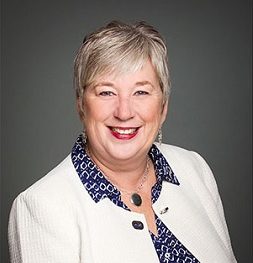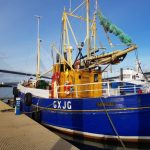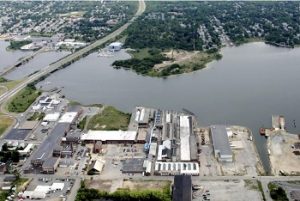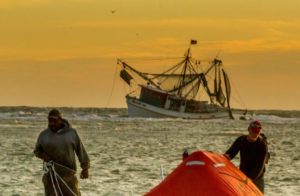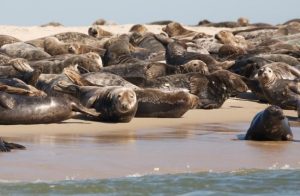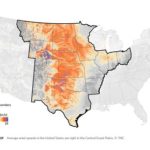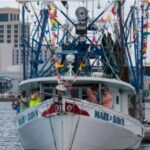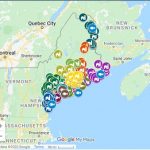“Everybody who has ever been a fisherman was drawn to it because of the freedom,” Erikson said. “The freedom to be your own boss, the freedom to be responsible to no one but yourself.” But money, freedom or even a viable living from the sea are in increasingly short supply on the B.C. coast, especially for young fishermen, said Jim McIsaac, vice-president of the Canadian Independent Fish Harvesters’ Federation. The number of people that can fish for a living is dropping because the cost of buying or leasing the Individual Transferable Quotas (ITQs),, The problem, McIsaac said, is that on the West Coast of Canada, the ownership of fishing licences and ITQs are not limited to fishermen.,, The federal government’s response,,, >click to read< 08:40
Daily Archives: July 22, 2020
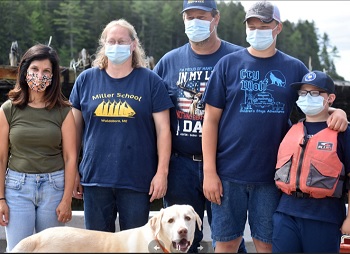
Gideon Makes Bremen Waterfront First Stop After Primary Win
Sara Gideon of Freeport is the speaker of the Maine House of Representatives. She will challenge four-term incumbent U.S. Sen. Susan Collins, a Republican, in the fall. On Wednesday, July 15, Gideon met with lobstermen at the Bremen Lobster Pound Co-Op and went out on the fishing vessel Four of a Kind with lobsterman Shannon Harvey and his family. Harvey told Gideon that restrictions on fishing gear related to right whales, as well as plans for offshore wind development, are just two of the challenges facing the Maine lobster industry. >lick to read< 17:21
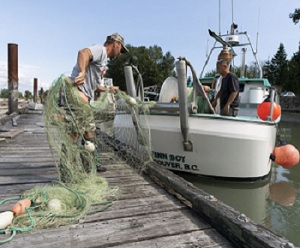
Fraser River sockeye fishery to stay closed because of concerns about the stocks
The department said in a notice Tuesday that Fraser River sockeye forecasts are “highly uncertain” at this time. Fraser River sockeye returns from 2015 and 2016 were forecast at 941,000 in total. Last year, the returns of 485,900 were the lowest since record keeping began in 1893. The other major challenge for this year’s sockeye — along with chinook, coho, and steelhead — is that they have to get through the site of the November 2018 Big Bar landslide on the Fraser River upstream of Lillooet. Despite installing infrastructure to help salmon, that area will “continue to be an impediment,” >click to read< 14:56
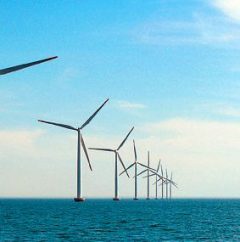
Fishing industry leaders voice offshore wind farm concerns to Trump interior secretary
Industry representatives voiced a raft of concerns with offshore wind, including the safety of commercial and recreational boaters navigating the waters, issues towing fishing nets through the farms and the potential for disrupting marine life.,, “In the West, we do wind. You know where we don’t put a windmill? In the middle of a highway,” Bernhardt said. “I need a development program that is done in a way that is sustainable for everybody.” Members of New England’s commercial fishing industry who feel they’ve been cast aside in the rush toward offshore wind took their concerns straight to the top of the Trump administration Tuesday in a Seaport sit-down with Interior Secretary David Bernhardt. >click to read< 12:57
Athearn Marine Agency Boat of the Week: 72’x22′ Steel Longliner, 425HP Cat, Price Reduced
To review specifications, information and 15 photos, >click here< To see all the boats in this series, >click here< 12:00
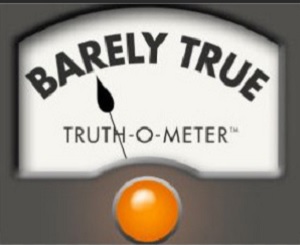
Vineyard Wind sails forward!
Atlantic waters 14 miles south of Martha’s Vineyard are again poised to be the site of a milestone that potentially rivals Pennsylvania’s Oil Creek Valley in U.S. energy significance. The Responsible Offshore Development Alliance (RODA), an advocacy group for fishing interests, along with other fishing organizations, has pushed for four-mile-wide transit lanes through the turbines for safe mobile gear fishing and safe general navigation. In general, fishermen have been the strongest critics of the project. “Vineyard Wind alone will generate at least 3,600 jobs, and reduce costs for ratepayers by an estimated $1.4 billion, according to the Massachusetts Department of Energy Resources,” the letter states. >click to read< 10:57
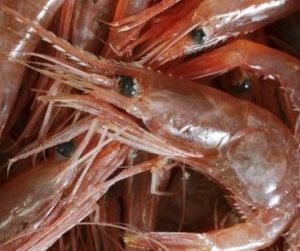
Newfoundland shrimp fishermen still in limbo as fish plants remain idle
Normally, the shrimp fishing season starts by June, with fishers in this area wrapping up their season in late August and hoping not to have to fish through the bad weather months of mid to late fall. But a wrangle over shrimp prices has lasted longer than usual, thanks in part to the uncertain markets caused by Coronavirus. In mid June the province’s Price Setting Panel decided on a price of $1.18 per pound, choosing the price suggested by the Fish Food and Allied Workers (FFAW-Unifor) over the price of .70 cents per pound suggested by the Association of Seafood Processors (ASP). Meanwhile, according to the union, shrimp processors in New Brunswick and Quebec, including a Royal Greenland-owned plant, have been buying shrimp from harvesters in that province while refusing to purchase from Newfoundland and Labrador harvesters. >click to read< 07:37






